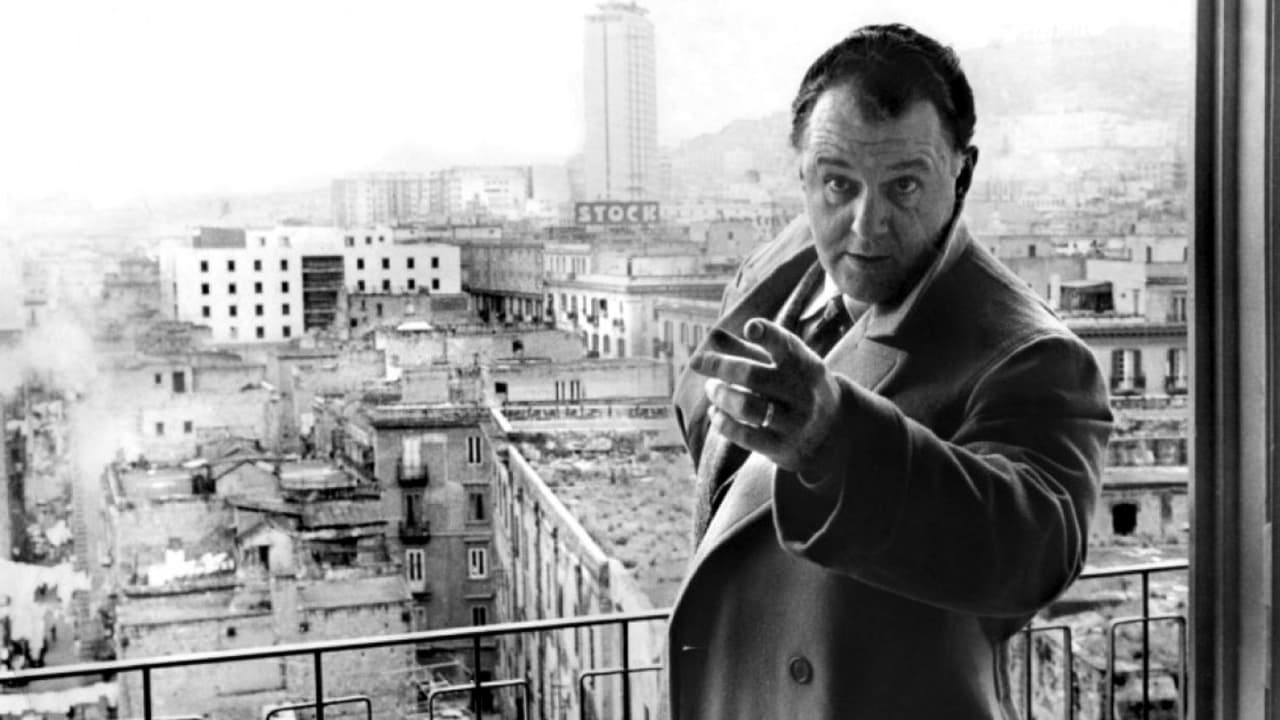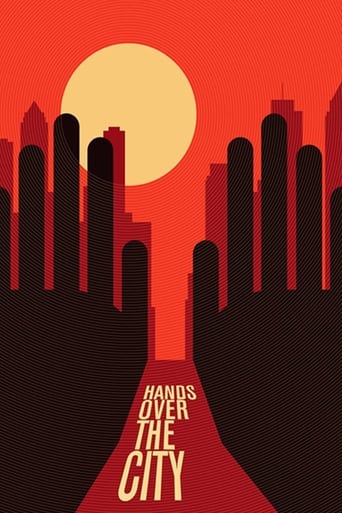SincereFinest
disgusting, overrated, pointless
Invaderbank
The film creates a perfect balance between action and depth of basic needs, in the midst of an infertile atmosphere.
Bessie Smyth
Great story, amazing characters, superb action, enthralling cinematography. Yes, this is something I am glad I spent money on.
Yash Wade
Close shines in drama with strong language, adult themes.
christopher-underwood
The first quarter of an hour of this film is completely mesmerising as we see a series of overhead shots of the different sides to the city of Naples and then the incredibly shot building collapse. At the same time we are made aware of the corruption in the building industry and how most of the money ends up in the same place all the time. Rod Steiger plays the main villain of the peace and it is an extraordinary performance. For considerable periods we simply see him prancing about his office, clearly struggling to think of the best way out of the immediate problem, the best way to get more political power and the best way for him and his son to stay on top. he expresses so much, and in such an Italian way, the pressures his constant messing with peoples' lives brings him. There are many fine sequences as the various political factions gang up and then get bought off as the big man inevitably gets his way. I preferred the slightly more fictionalised and later Three Brothers and Illustrious Corpses but this near documentary impression of Italy's boom building phase is very impressive and involving.
Lee Eisenberg
Francesco Rosi's movie "Le mani sulla città" ("Hands Over the City" in English) is about a developer (Rod Steiger) whose building collapses, leading to political fallout. While it looks like a simple story of corruption in Naples, it could be anywhere on earth. Any time that someone skimps on something, the people are going to suffer. People who insist that there should be no government involvement in anything don't realize (or refuse to realize) that they might be the ones suffering.If the movie has any downside, it's that we don't get to hear much from the people who suffered from the collapsed building. After the collapse, there are some scenes of protests, but most of the movie looks at the inner workings of the city government and how accusations fly in all directions.Rod Steiger (speaking perfect Italian) is particularly interesting as the developer-turned-city councilman. The guy looks like he could be any working stiff, but he has all sorts of Machiavellian plans. The last scene shows the various buildings throughout Naples, forcing the viewer to wonder if the whole thing will soon start over. All in all, it's a really good movie.PS: One scene inadvertently portends political crises to come in Italy. Towards the end of the movie, a character walks by a poster of Aldo Moro. Moro later got kidnapped and executed by the Red Brigades.
simon-bensasson
This film is not about any aspect of human activity which is particular to Italian life. It is about the prevalence of greed and corruption over the human being and society anywhere. In this sense its value is universal - not limited to Italy. One of its strong points is precisely that it is not focused on an individual family's drama. Such focus often moves in a very superficial way - it turns the universal problem into one family's problem (and if it could be solved everything would be fine). Take a movie like "Ace in the hole". An outstanding movie, one of the best of its kind and its time (maybe of all time) and a good example of the human-focused view. You empathise with the victim, you rebel against the man (KD) but otherwise this can still be the best of all possible worlds. Not so in any of the films of Rosi. Rosi, in this more than in any other of his films, puts the collective problem, as well as the collective responsibility so clearly and so strongly to the fore that I believe this to be, maybe, the best political film of its kind ever made.
politian
This film seems an effort to engage the life and destiny of a city at the level of the political and social, using journalistic techniques but always with an awareness that these are also interpretations - something that most USian journalism tends to overlook. What will mostly bother people is that it lacks the usual human center - the man/woman/family to which the bad things happen which will cause us to care that they are happening. This is hardly an oversight; it is a choice, and one that deserves to be considered openly without the rush to judgment that otherwise occurs when confronted with the unfamiliar. The human center of the film is there, but always at the edges, implied. We barely glimpse the victims of the collapsed building, but their fate informs every frame. And the superb "portrayals" by actual members of the city council (the De Vita character, e.g.) give us not actors, but people enmeshed in the actuality. This film deserves wider awareness.

